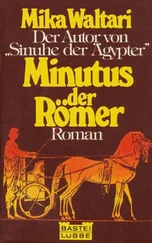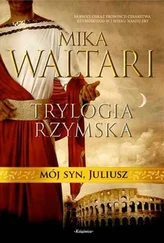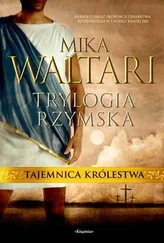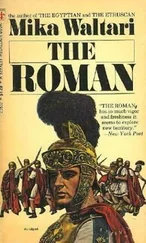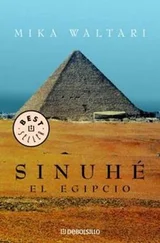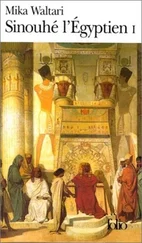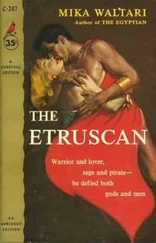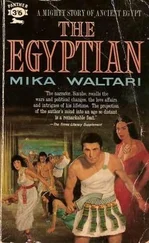After many days’ journeying through thicket and swamp we came at last to that melancholy battlefield where three years ago the fate of Hungary had been sealed. But in fact it had been determined long before, when the King of France begged the Sultan’s help against the Emperor. The Most Christian King’s alliance with the Moslem ruler was a more decisive factor than any battle. Poppies were already waving above the burial mounds: a reminder-to me, at least-of the vain sacrifices resulting from Christian disunity.
As Sinan and I were borne over these ghosdy plains we were overwhelmed by a sense of the pettiness of human life and the vanity of statecraft. Beneath our feet lay bones washed bare by torrential rains. Nothing distinguished Hungarian skulls from Turkish. Both gazed with blank eye sockets at a blank universe. The warriors lay among cannon balls and battered shields, their broken swords still in their skeleton hands, their only visible memorial the alien, Oriental flowers that blossomed about them. The seeds of these had fallen from Turkish wagons or mingled with the blood-soaked soil in the droppings of horses and camels, and at the sight of the thorny, broad-leaved plants with their blue flowers I was overcome with melancholy and cried, “Hail, field of Mohacs! Europe’s grave, memorial to Western statesmanship! Your bleached skulls bear witness of a continent that tore itself to tatters, as a maniac rends his own body. Bitterly do they tell of the princes of the West, who wrought one another’s destruction by treachery while night fell over Europe, and the crescent of Islam shone in menace from the East. Mohacs! Dark token of the decline of the West; bright promise also of a future when men shall not be required to give their lives for other men’s blind lust for power, and when East and West shall be ruled by the same just ruler, in the name of the Compassionate! His law will bind rich and poor alike and none shall persecute, strangle, burn, or torture another for his faith. People will live in concord within the pale of wise government and be free to practice their religion without making war. This is what we must achieve, and quickly, or there is no meaning in the world and no reason for living.”
In this highflown manner did I apostrophize the whitened bones of Mohacs. But then an unspeakable anguish seized me as I remembered the glorious cathedrals and smiling cities of Christendom, from whose steeples the hoarse voice of the muezzins might soon be calling the faithful to prayer. My blood, the faith in which I had been bred, and the memory of my forefathers bound me to the nations of the West which by their divisions had dug their own grave. Yet I was severed from the fallen Mohacs by my desire to live, even in changed conditions; I felt no urge to die for a faith that had doomed itself.
At that moment we heard the thunder of many hoofs, and the wind bore to us the clashing music of the janissaries’ drums and cymbals; life itself seemed on the march toward this field of death. Sultan Suleiman was proceeding to the scene of his greatest victory, and though in general his troops marched as silently as shadows, on this day the Sultan allowed the bands to play and the banners to fly before he called a halt for the night. With this martial music ringing in our ears we perceived the futility of our reflections, and hurried to our tent on the banks of the river.
Like magic the mighty camp sprang up on the desolate plain. Each man knew what he had to do, and soon the janissaries were seated in their groups of ten about the cooking pots and crackling fires. The Sultan’s pavilion with its awning stood on the highest knoll whose slopes were covered, as with a living carpet, by the bodyguard. The duty of these men was to sleep on the bare ground about Suleiman’s tent, with their bows beside them. While herdsmen watered the camels and oxen at the river and mowers cut hay for the spahis’ horses, Grand Vizier Ibrahim, attended by a brilliant retinue, rode forward to meet King Zapolya.
Next morning when we had washed ourselves and said the morning prayer, I met Master Gritti, who was evidently suffering from the effects of a carouse. He hastened to embrace me and said, “For the love of God, Master Carvajal, tell me where in this accursed camp a keg of refreshing wine may be had! Later today I have to accompany King Janos to the Sultan, lest he forget the Hungarian bishopric he promised me.”
I was far from pleased to see this licentious and scheming man, but common humanity required me to help him. Just then Andy, who had spent the night inspecting his cannon aboard the newly arrived rafts, came up to us and I asked his advice. After some deliberation he went to borrow a couple of horses for Master Gritti and myself to ride, and walked beside us to the camp of the Christian akindshas half a mile away. Unlike the Moslems they were filthy in their habits, and had befouled a lovely grove of beeches with their garbage and ordure. Janissary patrols, far from inspecting this camp, kept as far away as possible. In return for Master Gritti’s gold the ruffianly akindshas dug up a cask of excellent Tokay that they had buried and eagerly invited him to quench his thirst.
Like the experienced toper he was, Master Gritti drank only enough to bring the blood back to his head and put him in a good humor, for important tasks awaited him. Then we left the camp and he hastened to his tent to change his clothes and prepare to join King Zapolya’s suite. In order to receive the King in a worthy manner, the Sultan paraded his great army on either side of the reception tent, so that when after the noon prayer the lawful King of Hungary approached with his following he seemed like a drop that at any moment might be swallowed up by the ocean. I was not admitted to this ceremony, but afterward Master Gritti gave me a detailed account of what had passed. It seemed that the Sultan was pleased to walk three steps to meet Zapolya and to extend his hand to be kissed, and that he then invited him to take his seat beside him on the throne. I fancied that in thus honoring Zapolya the Sultan but honored himself, but Master Gritti had a better explanation to give.
“The cause goes deeper, for although Janos Zapolya is a man of no consequence and brings only six thousand horsemen, yet he has in his possession a magic talisman of far greater importance than an army, and it was this object that the Sultan by his flattering reception was able to secure. Zapolya is better as a scout than as a soldier and his partisans have by cunning caught and held the keeper of St. Stephen’s crown. I was compelled to confide this secret to my brother Ibrahim, or the Sultan would scarcely have troubled to receive the fellow.”
I answered politely that I failed to grasp his meaning, since a mere crown made no man king. To win a kingdom a powerful army was needed. But Master Gritti said, “Holy Stephen’s crown is unlike any other. The Hungarians are still a barbarous and superstitious people and recognize no one as king of Hungary until he has been crowned with this crown. Therefore it is their greatest treasure and the Voivod Zapolya removed at least half the obstacles in his path when he discovered its secret hiding place. And now this credulous man has sold it to the Sultan, for a matter of four horses and three kaftans, and five hundred trustworthy spahis are on their way to fetch it before King Zapolya repents of his bargain.”
It seemed that Master Gritti was right, for during our continued march to Buda I observed that no one took much notice of King Zapolya. He and his followers brought up the rear of the column, and the janissaries referred to him disrespectfully as Janushka. Three days after leaving Mohacs, we pitched camp in the vineyards about Buda. The walls of the city appeared exceedingly massive and the German garrison kept up so lively a fire that I hastened to visit the warm springs of the region, while Sinan the Builder set his men to sapping and mining in preparation for the siege.
Читать дальше

